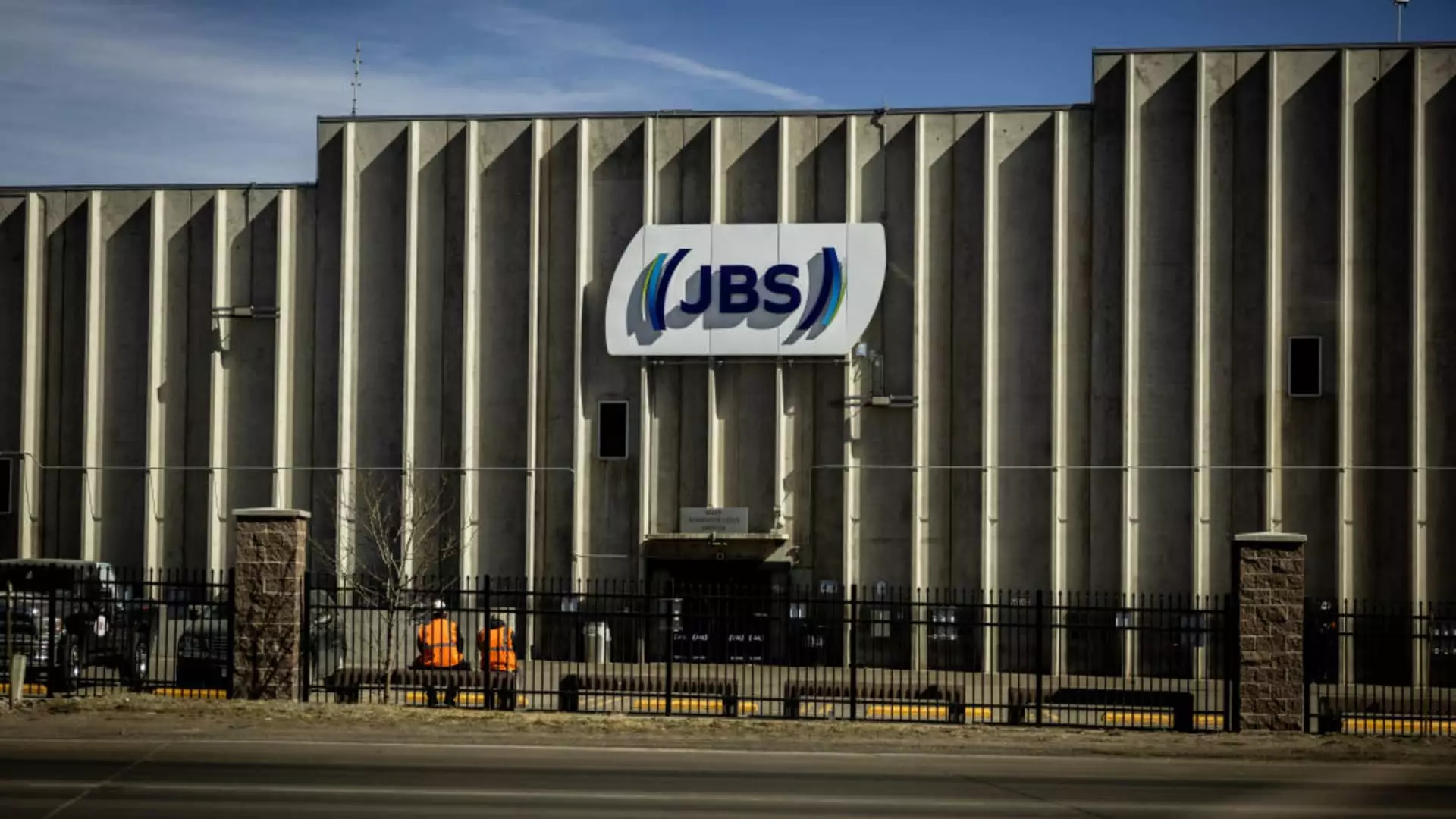The Brazilian meat giant JBS has recently made waves in the U.S. financial landscape by officially debuting its shares on the New York Stock Exchange (NYSE) at an impressive price of $13.65 each. With a monumental opening market valuation of around $30 billion—outstripping rival Tyson Foods, which sits at nearly $20 billion—JBS’s entrance serves as a resounding echo of its grand ambitions. For a company long overshadowed by legal and ethical controversies, this debut raises considerable eyebrows and challenges the American investment community’s appetite for ethically questionable entities.
JBS, which operates extensively across Brazil, the U.S., and Australia, boasts remarkable financial prowess, having generated a staggering net revenue of $77.2 billion and a net income of $2 billion last year. While these figures should typically warrant celebration, they are distinctly tainted when seen through the lens of the company’s compromised practices and the shadows of its past.
Corruption: A Dark History
While JBS’s growth is undeniably staggering, one cannot ignore its sordid history marred by corruption. The company has faced significant backlash due to its involvement in bribery scandals that rocked Brazil’s political landscape. From the infamous bribery probe in 2016 to settling a massive $3.2 billion fine, the headlines surrounding JBS often tell a story better suited for a crime thriller than a corporate portfolio. It seems remarkable that that a company with such a tainted past could secure favorable conditions for listing on a prominent stock exchange like the NYSE.
Still, the Batistas—the founding family behind JBS—managed to weave their way back into power after a series of controversial exits and legal repercussions. Their re-ascension to the helm of the company speaks volumes about a system that may favor connections over accountability. The fact that they avoided prison time mirrors a broader narrative across many sectors of society: the wealthy and powerful often find ways to skirt the consequences of their actions, leaving the public to question the integrity of their institutions.
Political Ties and Ethical Quandaries
JBS’s political maneuvering adds another layer of complexity to their story. Following the 2016 bribery allegations, the company became heavily scrutinized for its financial connections to political figures. They made significant donations—like the $5 million they reportedly gave to Donald Trump’s inauguration committee—illustrating a deeply entrenched relationship with the political sphere. Their assertion of having a “long bipartisan history” seems eerily convenient, raising flags about the potential implications of deep-pocketed corporations bending the governance to their favor rather than adhering to public accountability.
Opposition to JBS’s U.S. listing came from both sides of the political aisle; lawmakers were understandably perturbed at the prospect of a company with such a controversial track record being allowed to operate freely in one of the world’s most prestigious markets. When examined in the light of these unethical practices, it begs the question: what kind of message does it send to smaller, upstanding businesses when entities like JBS—imbued with a history of scandal—are granted such unfettered access to capital markets?
The Future: A Troubled Road Ahead
The recent legal troubles, including fines related to purchasing cattle from illegal sources in the Amazon, serve as harbingers of an uncertain future. With each new fine and scandal, one has to wonder about the sustainability of JBS’s operations, not to mention its ethical responsibilities toward both local communities and the environment. The environmental ramifications of JBS’s activities, particularly in terms of deforestation and habitat destruction, cast a long shadow over its economic successes.
As JBS continues its foray into the U.S. market, investors must seriously contemplate their moral compass and the long-term implications of supporting a company that has repeatedly found itself in murky waters. There’s a compelling argument to be made: that in pursuing profitability, our society has overlooked the damaging consequences of its most prominent corporate figures. Only time will tell how JBS’s tumultuous narrative will unfold—but one thing is certain: the road ahead is far from clear.

